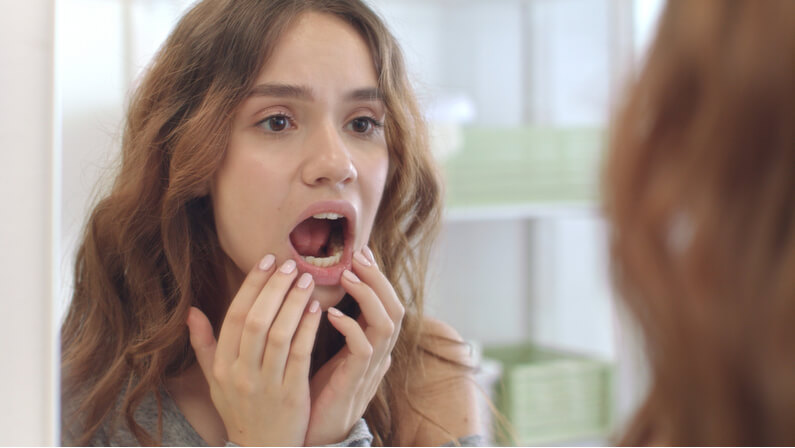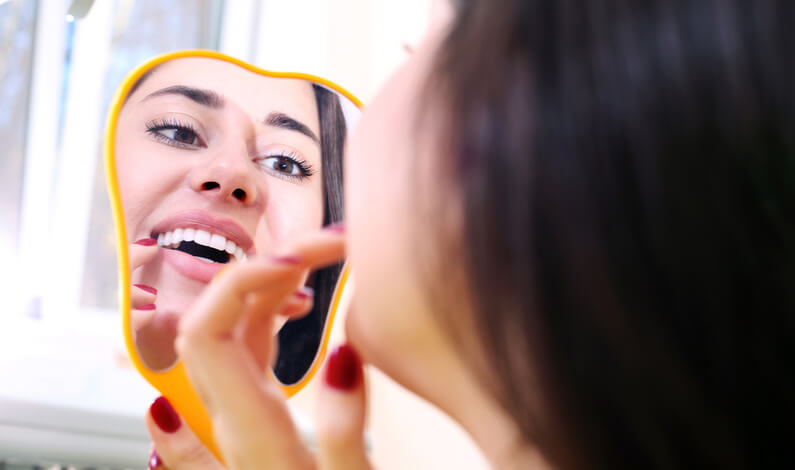A dental crown serves as a protective covering for a tooth that has been damaged. It may be essential following root canal treatment in order to prevent tooth fracturing.
Unlike veneers, dental crowns cover most or all of a tooth’s surface area. These dental implants are designed to support a damaged or weak tooth.
Although dental crowns are designed to survive for many years, this does not imply that they cannot be lost or removed from your tooth at any time.
Crowns are more likely to lose out when consuming soft or sticky foods, like toffee or caramel. A temporary crown might fall out if the adhesive that holds it in place fails, but it can also come loose if your teeth begin to deteriorate.
Now, you may be wondering what happens if your crown falls out. Simple—The underlying tooth is at risk. But don’t worry as a new crown may be put without further harming the tooth.
Here’s a step-by-step guide to help you if your dental crown slips out:
What to do when tooth crown fell off

Make an immediate dental appointment if your dental crown fell out. You may not be able to arrange an appointment until the following day if your dental crown slips off over the weekend or at night. In the meanwhile, don’t freak out.
If your dental crown comes off on holiday or at nighttime, here’s what to do.
1. Don’t Panic
When your dental crown fell off, the most critical thing to do is remain calm and not panic. Keep in mind that it may be replaced if you break your dental crown. Even if it’s uncomfortable at first, the damage isn’t irreversible.
In case your crown fell out with no tooth left, you may need to find alternatives to replace the tooth. Call your dentist right away as they are the best person to determine the proper course of action.
2. Recover the crown
Ensure to retrieve the crown and bring it to a dentist for examination. The dentist may be able to fix it and put it back in your mouth if they clean it up.
Look closely to determine the extent of the damage. As long as there isn’t a tooth within the crown, it’s likely that your dentist will be able to repair it once they see you quickly.
Seeing a tiny amount of metal inside the crown is very natural. This is the crown’s post, which serves to keep it attached to your tooth.
3. Consult your dentist
Your dentist should be contacted immediately when your tooth crown fell off so that an appointment may be scheduled. For emergency dental care, they may often accommodate you right away if they have time available.
Treating teeth after a crown falls out

Until you can arrange an appointment with a dentist, you should protect your tooth. Here’s how to fix a crown that fell out:
- If you’ve chipped or broken a crown but still have it, you can use it to cover the tooth until you can get a permanent replacement.
- After cleaning the crown’s interior, apply temporary cement to the surface and keep it in place.
- Temporary dental cement is a good option if you’re looking for a simple way to protect your teeth from infection.
- Dental wax can be molded over the tooth to fill in the gap and act as a barrier for a limited duration. Dentists often prescribe dental wax for individuals with braces or other surgeries; however, it is also frequently available at pharmacy shops.
In the meantime, until you can see a dentist, you can use these products to seal and preserve your teeth.
What causes the loosening of dental crowns?
Crowns fall off for various reasons. Teeth decay, poor dental hygiene, and foods that stick to teeth can cause a crown to come loose.
Another common scenario is when a Dentist makes an error during the preparation or placement of a crown.
An additional risk factor for a loosened dental crown is grinding or clenching your teeth. Tooth decay, gum disease, or loss of bone might cause the crown to loosen and fall off. This can also happen if you don’t take care of your teeth properly.

Prevention: Is it possible to keep a crown from falling out?
If your crown isn’t correctly seated in your mouth or the cement has deteriorated, there is nothing you can do. You may, however, take preventative measures to keep your crown from coming loose.
Academy of General Dentistry suggests the following steps:
- Avoid chewing ice.
- Highly sticky or chewy meals should be avoided at all costs
- Brush your teeth at least twice a day.
- Floss frequently.
- Remove plaque from the region where your gums meet your tooth and crown with an interdental brush (a larger brush that goes between your teeth like floss).
- A dentist may also advise using a mouthguard to secure your crown and other teeth if you grind your teeth at sleep.
For how long do dental crowns last?

Dental crowns can last anywhere from five to 15 years on average. How much “wear and tear” the crown is subjected to, how effectively you practice excellent oral hygiene procedures, and your own mouth-related behaviors all affect the crown’s lifespan.
To prolong your crowns longevity, avoid the following habits:
- Opening a packaging through your teeth
- fingernails biting
- ice chewing
- teeth clenching or grinding
Make an Appointment with the Dentist
The remaining tooth structure is exposed when a dental crown is removed. To avoid additional deterioration or breakage, it is best to replace a crown as soon as possible.
You have a higher chance of preserving the exposed tooth if you come in for treatment as soon as possible. If the crown is exposed, an emergency dental treatment might help you bring your smile back.
Contact Brownstone Dental to schedule an appointment.